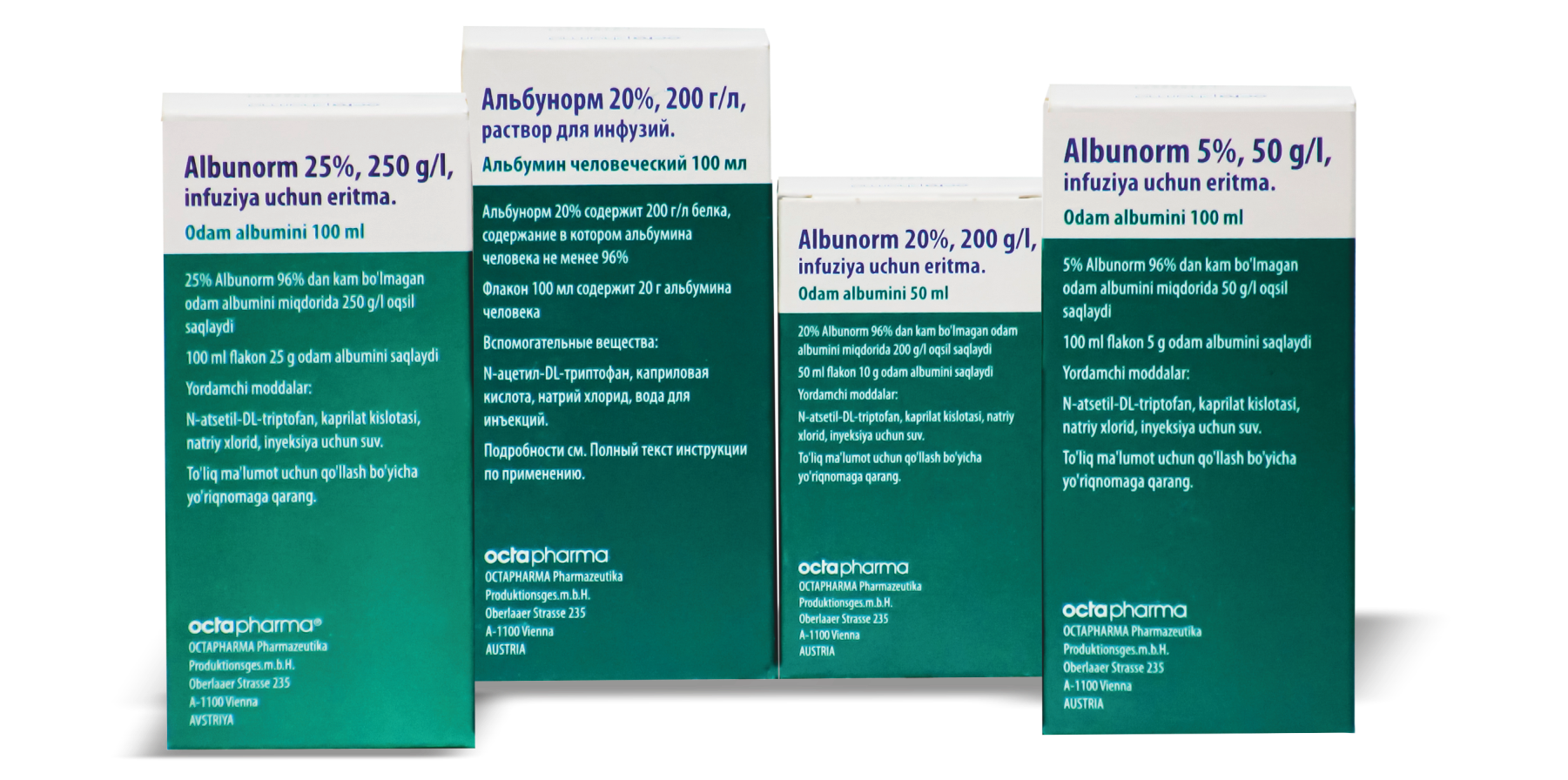
Composition: Albumin
Form: Infusion solution
Indications: Hypoalbuminemia, shock, nephrotic syndrome, severe burns, ascites, acute liver injury, cerebral edema, ARDS, hemolytic disease of the newborn, therapy during plasmapheresis and hemodialysis.
Contraindications: Hypersensitivity to albumin, severe anemia, hypervolemia, pulmonary edema, thrombosis, active internal bleeding, arterial hypertension, chronic heart failure (stage II–III).
Dosage: Intravenously via drip or bolus. Adults: up to 100 ml of 20% solution at a time. Children: 1–3 ml/kg. Administration rate — no more than 1–2 ml/min. Administered only in hospital settings.
Side effects: Rare: anaphylaxis, hypotension. Very rare: urticaria, tachycardia, dyspnea, fever, confusion, rash.
Interactions: No specific drug interactions described. Do not mix with other medications, whole blood, protein hydrolysates, amino acids, or alcohol-containing solutions.
Warnings: Do not use if solution is cloudy or vial integrity is compromised. Monitor electrolyte and fluid balance. Reactions may occur in sensitized patients.
Age restrictions: For adults and children as indicated
Pregnancy: Safety not established, but no harmful effects on fetus or newborn expected. Use if necessary.
Country of origin: Austria
Manufacturer: Octapharma Pharmazeutika Produktionsges.m.b.H
Storage conditions: Store at 2°C to 25°C in a light-protected place. Do not freeze.
There are no studies available.
❓ Where is Albunorm used?
💬 Mainly in hospitals — for shock, burns, hypoalbuminemia, acute liver conditions, and other critical states.
❓ Can it be administered outside a hospital?
💬 No. Albunorm is used only in hospital settings under medical supervision.